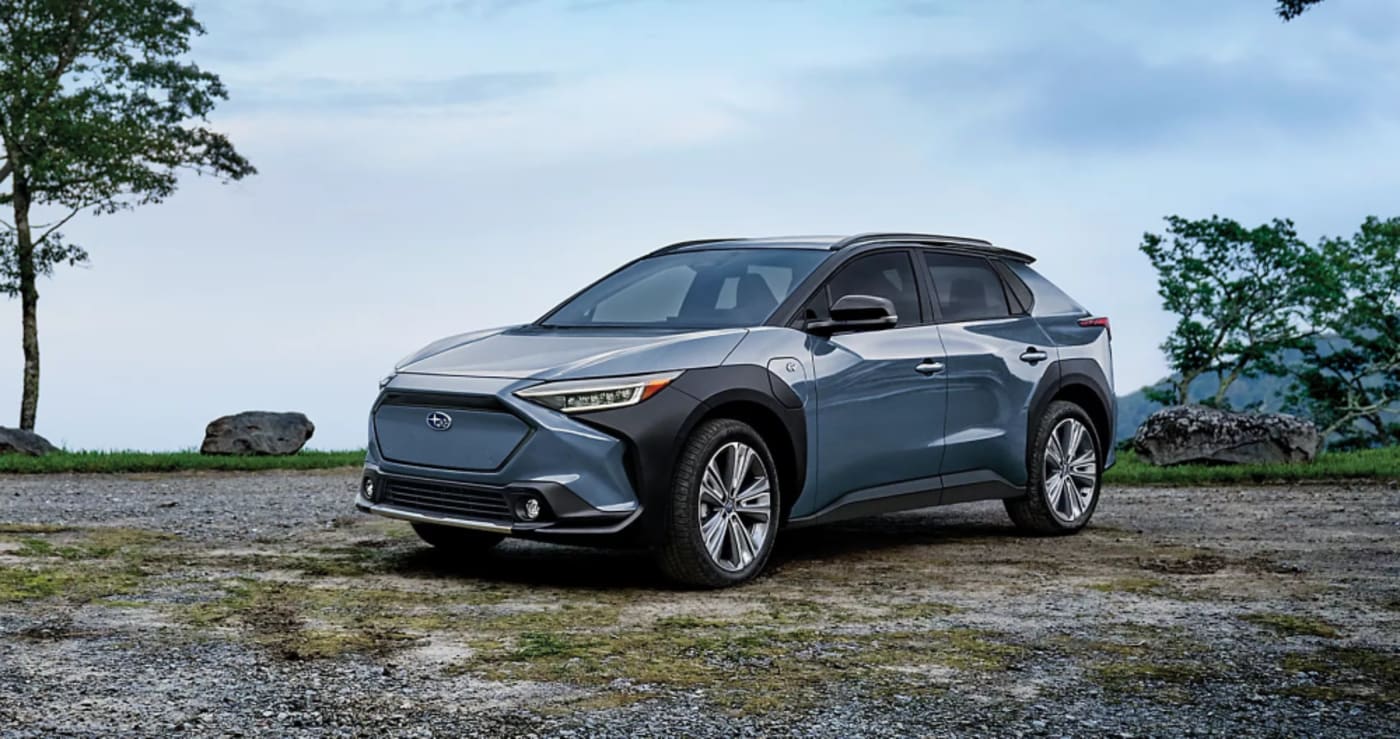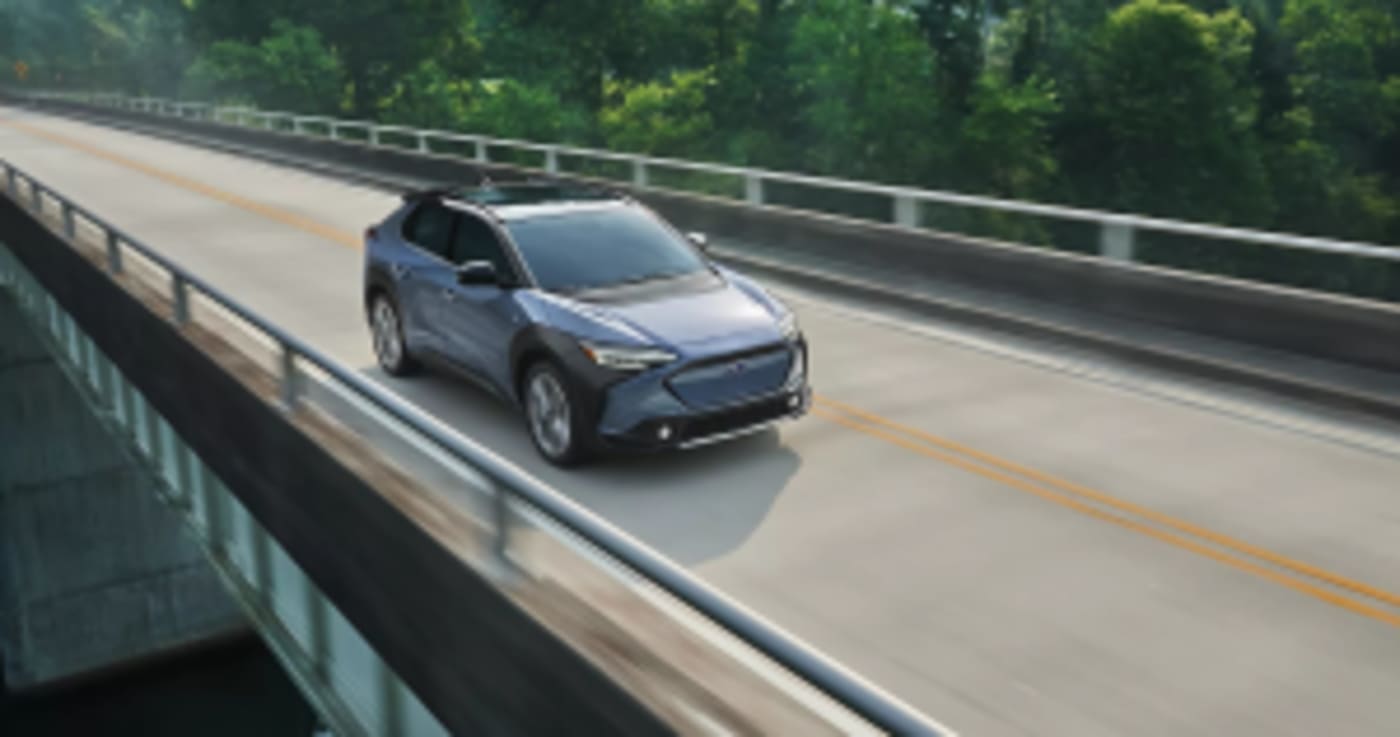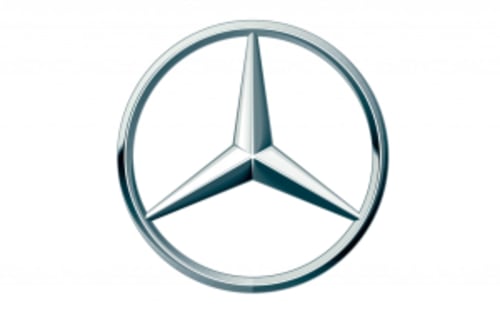Information and electric vehicles of the [object Object] brand

![[object Object] logo](https://res.cloudinary.com/donyiousk/image/upload/w_80/f_auto/c_scale,w_1400/v1/car/ajrheoeigcifbgji0gv8)
Subaru
The future of driving is electric.



Subaru electric vehicles
What makes Subaru EVs different from other brands?+
Subaru, known for its all-wheel-drive vehicles and boxer engines, has entered the electric vehicle EV market with its own unique offerings. Here are some key aspects that differentiate Subaru EVs from other brands:
Focus on All-Wheel Drive: Unlike many other EV brands that prioritize maximizing range, Subaru EVs prioritize their signature all-wheel-drive capability. This ensures optimal traction and handling even in challenging weather conditions, a major selling point for Subaru loyalists and adventure enthusiasts. Their AWD system also helps distribute weight more evenly, potentially improving stability and handling.
Boxer Engine Technology: While most EVs rely on electric motors mounted on the axles, Subaru EVs like the Solterra utilize a unique hybrid system that combines an electric motor with a Subaru-modified gasoline boxer engine. This engine acts as a generator to extend the driving range when the battery is depleted, offering a safety net against range anxiety for those venturing far from charging stations.
Ruggedness and Adventure-Ready Features: Subaru EVs inherit the brand's reputation for being built to handle tough terrain. They often have higher ground clearance and features like off-road driving modes and protective cladding, making them suitable for exploring beyond paved roads. This caters to Subaru's adventurous customer base who might not want to give up their outdoor activities when switching to an EV.
Safety and Driver Assistance: Subaru is known for its focus on safety, and its EVs are no exception. They come equipped with a suite of advanced driver-assistance systems ADAS like automatic emergency braking, lane departure warning, and adaptive cruise control, ensuring a safe and comfortable driving experience.
Focus on Utility and Practicality: Unlike some sleek and stylish EV offerings, Subaru EVs prioritize practicality and functionality. They often have spacious interiors and ample cargo space, making them suitable for families and those who need to haul gear. This aligns with Subaru's traditional focus on family-friendly and versatile vehicles.
Brand Identity and Community: Owning a Subaru often comes with a sense of belonging to a community of outdoorsy and adventurous individuals. This brand identity extends to their EVs, attracting buyers who appreciate the ruggedness, capability, and heritage associated with the Subaru name.
It's important to note that Subaru is still a relatively new entrant in the EV market, and their offerings might not yet match the range or efficiency of some established brands. However, their unique focus on all-wheel drive, boxer engine technology, and adventure-ready features makes them a compelling choice for those seeking a practical and capable EV that stays true to Subaru's core values.
Ultimately, the choice of which EV brand is right for you depends on your individual needs and priorities. Consider factors like driving range, charging availability, performance, features, budget, and brand identity when making your decision.
What are the different models of Subaru EVs available?+
Currently, there is only one Subaru EV model available, the 2023 Subaru Solterra:
The Solterra is a fully electric SUV that boasts all-wheel drive, spacious cargo capacity, and impressive technology features. It has a starting MSRP of $44,695 and offers an estimated range of 222-228 miles on a single charge.
However, Subaru has ambitious plans for the future of EVs:
- Three new EVs by 2026: These are currently shrouded in mystery, but we can expect more all-electric SUVs to join the Solterra lineup.
- Eight total EV models by 2028: This includes expanding beyond SUVs and potentially venturing into sedans or other body styles.
- Increased production capacity: Subaru plans to build its own EVs at dedicated plants starting in 2025, significantly ramping up production compared to the current Toyota-built Solterra.
So, while there's only one Subaru EV available right now, stay tuned for an exciting expansion in the coming years! I'll be sure to keep you updated on any new models or release dates.
In the meantime, if you're interested in learning more about the Solterra, here are some resources:
- Official Subaru Solterra website: Link
- Car and Driver review: Link
- TechCrunch article on Subaru's EV plans: Link
How much do Subaru EVs cost?+
As of today, December 28, 2023, Subaru only has one electric vehicle: the 2023 Solterra. The Solterra's starting price is $44,995, but the final cost can vary depending on trim level and desired options. Here's a breakdown of the different Solterra prices:
- Premium trim: $44,995
- Limited trim: $48,495
- Touring trim: $51,995
Some factors that can add to the base price include:
- Two-tone paint: $890
- Advanced Technology Package standard on Touring trim: Includes features like a 360-degree surround-view camera, Harman Kardon® premium audio, and a power liftgate
Additionally, remember that you may be eligible for various tax credits and incentives that can lower the effective cost of buying a Subaru EV. For example, the federal government offers a tax credit of up to $7,500 for the purchase of a new electric vehicle, and many states also offer their own incentives.
Here are some resources to help you learn more about the cost of a Subaru EV:
- Subaru's website: Link
- Kelley Blue Book: Link
- Car and Driver: Link
What is the range of Subaru EVs?+
As of today, October 26, 2023, Subaru only has one electric vehicle: the 2023 Subaru Solterra. Its range varies depending on the trim level:
- Premium trim: EPA-estimated range of 227 miles
- Limited and Touring trims: EPA-estimated range of 222 miles
It's important to remember that the EPA ratings are under ideal conditions. Real-world range can be affected by various factors like:
- Driving habits: Aggressive driving, such as rapid acceleration and high speeds, will drain the battery faster.
- Weather conditions: Cold weather reduces battery range, while hot weather can slightly increase it.
- Terrain: Hills and mountains require more energy to climb, reducing range.
- Use of accessories: Features like air conditioning and heating draw power from the battery.
The Solterra's range might not be the highest compared to other electric SUVs, but it's still enough for most everyday commutes and weekend trips. You can explore online range trackers and calculators to get a better estimate of how far you can go based on your typical driving conditions.
Here are some additional points to consider:
- The Solterra comes with a standard Level 1 charger and an optional Level 2 charger. Level 2 charging is much faster than Level 1, so it's a good option if you plan on doing a lot of long-distance driving.
- The Solterra can also be fast-charged at DC fast-charging stations, which can recharge the battery to 80% in about 56 minutes.
How long does it take to charge a Subaru EV?+
The charging time for a Subaru EV depends on several factors, including:
- The specific Subaru EV model: The Subaru Solterra is currently their only fully electric car and its charging time varies based on the charging method used.
- The charging method: There are three main levels of charging:
- Level 1 charging: The slowest option, using a standard 120-volt outlet. For the Solterra, this can take up to 24 hours to reach an 80% charge.
- Level 2 charging: A faster option, using a 240-volt outlet and a dedicated EV charger. This typically takes around 6-9 hours for a full charge in the Solterra.
- Level 3 DC fast charging: The fastest option, using a DC fast charger that can provide up to 150 kW. This can charge the Solterra to 80% in about 30 minutes.
- The battery's current charge level: A partially charged battery will take less time to fully charge than an empty battery.
- Environmental factors: Colder temperatures can slow down charging.
Here's a rough estimate of charging times for the Subaru Solterra:
| Charging Method | Time to 80% | Time to Full |
|---|---|---|
| Level 1 | 24 hours | ~36 hours |
| Level 2 | 1 hour | 6-9 hours |
| Level 3 DC fast charging | 30 minutes | 45-60 minutes |
If you're looking for a more specific answer, please tell me which Subaru EV model you're interested in and what charging method you're considering.
What are the maintenance requirements for a Subaru EV?+
Subaru EVs, currently represented by the Solterra, require less maintenance than traditional gasoline-powered vehicles. However, they still need some regular upkeep to keep them running smoothly and safely. Here's a breakdown of what you can expect:
Reduced Need for Certain Services:
- No oil changes: Unlike gas engines, electric motors don't require oil changes or related oil filter replacements.
- No spark plugs or timing belts: These common wear items in gas engines are absent in EVs, eliminating the need for periodic replacements.
- Reduced brake wear: Due to regenerative braking, EV brake pads tend to last longer than those on gas cars. However, inspections and replacements are still needed.
Regular Maintenance Items:
- Tire rotations and pressure checks: Every 6 months or so, get your tires rotated and pressure checked to maintain optimal wear and fuel efficiency.
- Wiper fluid and coolant checks: Every 2-3 months, top up or replace wiper fluid and check coolant levels.
- Brake inspections: Every 6 months, have a technician visually inspect your braking system for wear and tear. Brake pad replacements will be needed eventually, but less frequently than on gas cars.
- Battery care: Follow the manufacturer's charging recommendations to maximize your battery's lifespan. Avoid extreme temperatures and fast charging when possible.
- Other scheduled maintenance: Refer to your owner's manual for specific maintenance schedules and intervals for your Subaru EV model. This may include inspections of suspension components, steering linkage, drive shafts, and more.
Additional Points:
- Battery warranty: In the US, EV batteries come with a mandatory warranty of 8 years or 100,000 miles, and in California, it's even longer at 10 years or 150,000 miles. This covers battery degradation and potential replacements should they be needed.
- Dealer vs. independent shops: You can get some EV maintenance done at independent shops, but certain tasks like battery diagnostics or software updates may require authorized dealership technicians.
Overall, Subaru EVs offer significant maintenance cost savings compared to gas cars. While they still require attention to wear-and-tear items and scheduled services, the simplified electric powertrain keeps things much less demanding. Always refer to your owner's manual for specific maintenance schedules and recommendations for your Subaru EV model.
Does Subaru offer any tax credits or incentives for purchasing an EV?+
While Subaru itself doesn't offer direct tax credits or incentives for purchasing an EV, you might be eligible for a federal tax credit:
- Up to $7,500: This is the "Clean Vehicle Credit" available for purchasing new electric cars or fuel cell electric vehicles starting in 2023. However, there are some eligibility requirements:
- Car price: The MSRP must be below $80,000 for SUVs and $55,000 for sedans, wagons, or hatchbacks.
- Battery components: Some portion of the vehicle's battery components must be produced or assembled in North America.
- Critical minerals: A portion of the critical minerals used in the battery must be extracted or processed in the U.S. or its free-trade partners, or recycled in North America. These requirements will become stricter in 2024, and may disqualify some vehicles.
- Lease option: There are now ways to get the credit as an instant discount at the dealership when leasing an eligible EV.
Additional incentives:
- State and local incentives: Depending on your location, there may be additional tax credits, rebates, or other incentives for purchasing an EV. You can check your state's government website or a website like PlugShare for more information.
- Discounts on charging: Some electric utilities offer discounts on charging costs for EV owners.
- Reduced maintenance costs: EVs have fewer moving parts than gasoline-powered vehicles, which can lead to lower maintenance costs.
For Subaru specifically:
- 2023 Subaru Solterra: This is the only full EV currently offered by Subaru and it meets the current requirements for the federal tax credit.
- Lease program: As of December 2023, Subaru might offer a lease program where the tax credit amount is used to directly reduce your monthly lease payments.
Remember:
- The tax credit is a reduction of your tax liability, not a direct discount on the purchase price.
- You can find more information about the federal tax credit on the IRS website: Link
- Be sure to consult with a tax professional to see if you qualify for any tax credits or deductions related to purchasing an EV.
What is the warranty on a Subaru EV?+
Subaru's warranty for their EVs, primarily the Solterra, comes in three main parts:
1. Limited Warranty 36-month / 60,000-km:
This covers all the standard components of your Subaru, similar to its non-electric models. It lasts for 3 years or 60,000 km, whichever comes first.
2. Major Component Warranty 60-month / 100,000-km:
This extends coverage for major components like the engine, transmission, axles, and driveshafts beyond the basic warranty to 5 years or 100,000 km.
3. Battery and Electric Drive Unit Limited Warranty 96-month / 160,000-km:
This is the warranty most specific to EVs. It covers the heart of your electric car: the high-voltage battery pack, AC/DC inverter, DC/DC converter, transmission, and electric motor assemblies. This warranty lasts for an impressive 8 years or 160,000 km, whichever comes first.
Key points to remember about the EV warranty:
- Battery capacity degradation: The warranty guarantees a minimum of 70% of the original battery capacity remaining after the warranty period. If the battery dips below this threshold, Subaru will replace it under warranty.
- Exclusions: As with any warranty, there are exclusions for normal wear and tear, improper maintenance, and modifications not approved by Subaru.
- Regional variations: Warranty terms and mileage may vary slightly depending on your region. Always refer to the warranty booklet provided with your car for the most accurate details.
Here are some resources where you can find more information about Subaru's EV warranty:
- Subaru Canada: Link
- Subaru USA: Link
- Subaru UK: Link
Where can I learn more about Subaru EVs?+
There are many great resources to learn more about Subaru EVs! Here are a few suggestions:
Official Subaru resources:
- Subaru EV website: The official Subaru website has a dedicated section for their EVs, including information about the current model Solterra, as well as their future plans for expanding their lineup. You'll find specs, technology details, brochures, and even a comparison tool to see how the Solterra stacks up against other EVs.
- Subaru newsroom: The Subaru newsroom is a great way to stay up-to-date on the latest developments in their EV plans, including press releases about new models, partnerships, and technology advancements.
- Local Subaru dealership: Visiting your local Subaru dealership is a great way to get hands-on experience with the Solterra and ask questions to a knowledgeable salesperson. Many dealerships also host events and test drives specifically for EVs.
Other resources:
- Car review websites: Many car review websites like Car and Driver, Edmunds, and Kelley Blue Book offer comprehensive reviews of the Solterra, comparing it to other EVs in its class. They often provide detailed information about performance, range, comfort, and features.
- Electric vehicle news websites: Websites like Electrek and InsideEVs focus specifically on electric vehicles and cover all the latest news and developments. They often have articles and comparisons about Subaru EVs and their competitors.
- YouTube channels: Many car reviews and enthusiast channels on YouTube provide video reviews of the Solterra and other EVs. These can be a great way to get a visual sense of the car and see it in action.
Here are some specific links to get you started:
- Subaru EV website: Link
- Subaru newsroom: Link
- Car and Driver Solterra review: Link
- Electrek Subaru EV coverage: Link
- InsideEVs Subaru EV coverage: Link





































